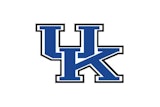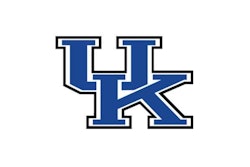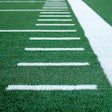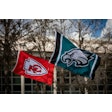As the debate over pay-to-play rages on, the reality of what it means to be a college student-athlete is increasingly coming into focus — overwhelming schedules, dietary restrictions, mental health concerns, and the burden of having every aspect of their lives constantly monitored.
In an op-ed for Forbes.com, Karen Weaver questions how student-athletes’ location and biometric data is to be handled and protected going forward.
“As senior leaders in higher education, our students’ personal data is not ours, especially their ‘biometric’ data about physical performance, and should not be for sale as part of an apparel deal, a weight room software package, or any futuristic performance enhancing clothing,” Weaver wrote.
Weaver notes that the University of Michigan was the first major college brand to consent to collecting private performance data from their athletes as part of their apparel contract, noting that the Wolverines signed with Nike. As part of that agreement, she explained, the $170 million deal may “allow Nike to harvest personal data from Michigan athletes through the use of wearable technology like heart-rate monitors, GPS trackers and other devices that log myriad biological activities,” according to a story in the New York Times.
Colleges and universities are also in on the data collection, with school wi-fi networks monitoring their movements on campus, in some cases gathering as many as 6,000 location data point per student per day.
Another service called SpotterEdu, which is employed by many institutions, uses Bluetooth beacon technology to track when players arrive and depart assigned classrooms.
One of the problems Weaver notes with all this technology is that even the companies that offer it admit that it may not be 100 percent accurate.
“For those athletes looking to advance to the professional level, this kind of data could be exchanged between the institution and the pro team,” Weaver wrote. “How does the athlete know it's accurate, or that it hasn’t been tampered with?"
Weaver puts the whole discussion in the context of pay-to-play, asking why schools should be privy to all this information about a player, while the players themselves don’t even have control over their name, image and likeness.
“Athletic directors especially need to consider the implications of trading off players’ personal data for more lucrative contracts (as appears to be the case at Michigan),” Weaver wrote. “In effect, data and apparel companies are using college athletes as free research subjects in a for profit enterprise. How is that any different than using their names, images and likenesses?”





































